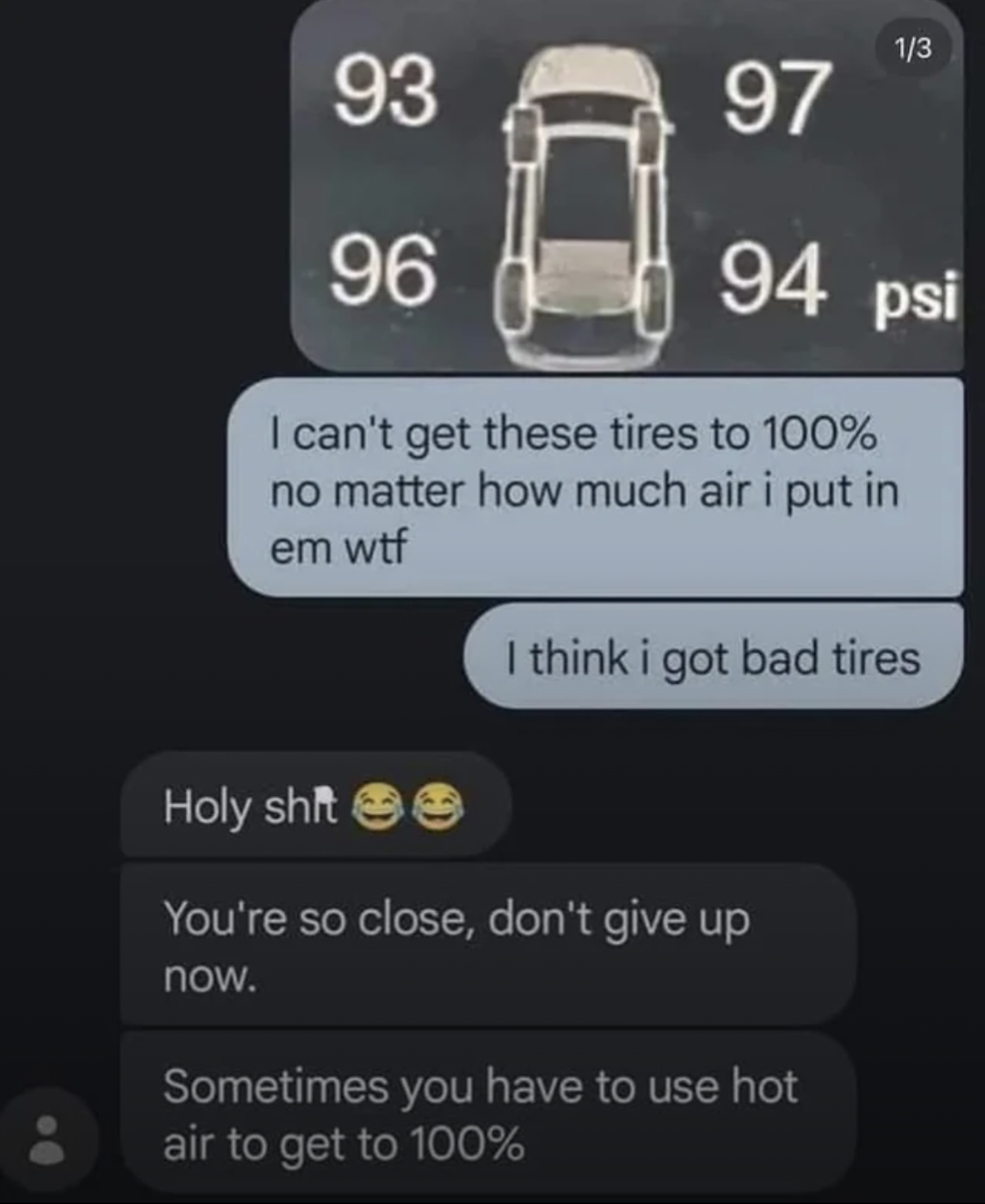this post was submitted on 20 Sep 2024
705 points (97.2% liked)
Funny: Home of the Haha
5742 readers
810 users here now
Welcome to /c/funny, a place for all your humorous and amusing content.
Looking for mods! Send an application to Stamets!
Our Rules:
-
Keep it civil. We're all people here. Be respectful to one another.
-
No sexism, racism, homophobia, transphobia or any other flavor of bigotry. I should not need to explain this one.
-
Try not to repost anything posted within the past month. Beyond that, go for it. Not everyone is on every site all the time.
Other Communities:
-
/c/TenForward@lemmy.world - Star Trek chat, memes and shitposts
-
/c/Memes@lemmy.world - General memes
founded 1 year ago
MODERATORS
you are viewing a single comment's thread
view the rest of the comments
view the rest of the comments

I won't be as rude, but you are the one making a claim that exceeds both common sense and the warning on a typical car tire sidewall. A leak from a puncture area, bad bead seal, or tire failure point will show at normal inflation pressures with a water/soap test, as anyone in their backyard can attest to. You don't need to simulate flexing and stress for this, in fact pushing the tire to its limits with high pressure will absolutely find a failure of the tire structure very quickly, which was the point of my warning. Maybe you've never seen or heard a tire explode. It doesn't pop like a balloon.
I would question any shop doing this procedure from a manufacturer's recommendations and from OSHA standards.